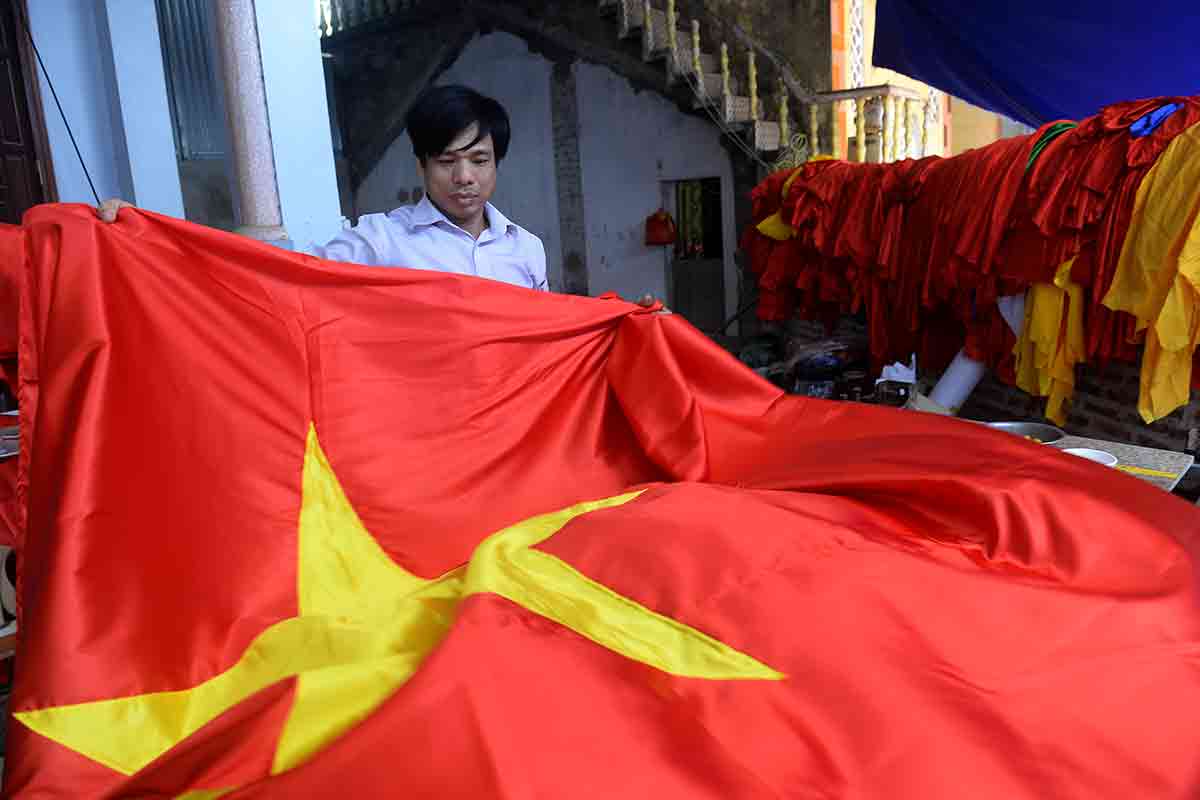A Vietnamese activist was put under house arrest and barred from leaving the country after she defaced the national flag, she told media on Friday, vowing to fight for democracy in the one-party state where dissent is swiftly stamped out.
Authorities in the communist country show little tolerance for criticism of any kind, and desecrating national symbols such as the yellow-starred red flag is deemed particularly offensive.
Huynh Thuc Vy, 32, was ordered to remain in her home and is blocked from leaving the country until October while she is under investigation for "affronting the flag" after she smeared white paint on the national banner last year.
"The red flag shows the authoritarian rule of Vietnam's Communist Party, which goes against human progress and symbolises the abuse of democracy and human rights," she said from her home in central Dak Lak province.
It is common in Vietnam for suspects to be detained during investigations and if convicted, Vy could face up to three years in prison.
A co-founder of the Vietnamese Women for Human Rights group, Vy won a Hellman/Hammett grant from Human Rights Watch in 2012 for her political writing on rights issues and the persecution of ethnic minorities.
Vy said police came to her house early Thursday and confiscated her phones, computer and camera before interrogating her for 15 hours and issuing the house arrest order.
She said she is frequently "targeted" by officials and refused to stand down despite the investigation.
"I will continue doing what I need to do. I really want a free and democratic Vietnam so my children and grandchildren can live happily," said Vy, who has an infant daughter.
Her father is a former political prisoner and was jailed in 1992 for 10 years for "propaganda against the state".
Calling for her release, Amnesty International said the arrest "is nothing more than a politically-motivated attempt to silence one of the most powerful voices for human rights in Vietnam".
Vietnamese officials did not immediately respond to requests for comment on the case.
There are scores of bloggers, lawyers and activists behind bars in Vietnam, where political parties are banned and all press is state-controlled.
Many activists have turned to social media to air their grievances, though a recently passed cybersecurity law has sparked fears that online expression could be curbed.
The bill - which drew criticism from the United States (US) and the European Union (EU) - requires internet providers like Facebook and Google to hand over user data and remove "offensive" content upon request from the government. - AFP
